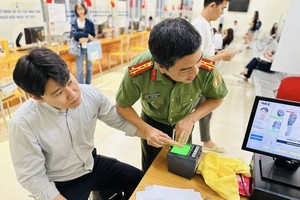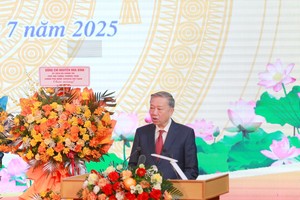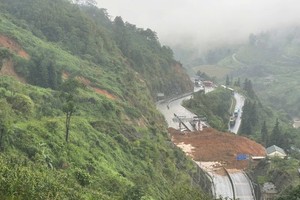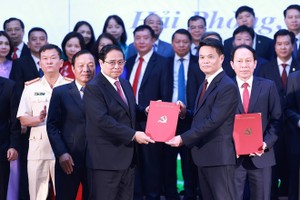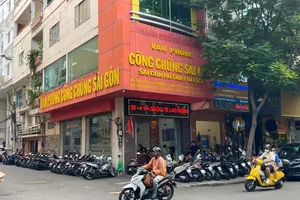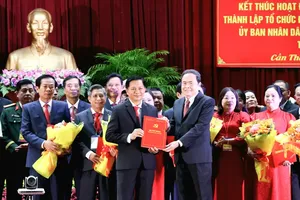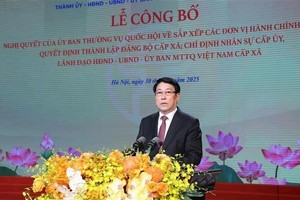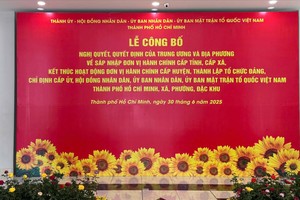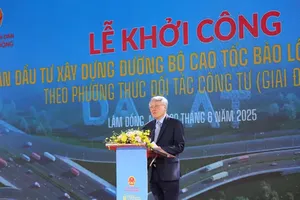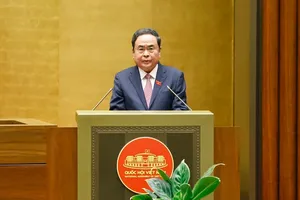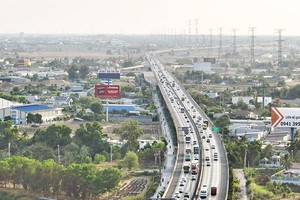Book publishing, searching for the right book, negotiating deals and seeking copyrights are challenges faced in the world of book publishing, a job not for the faint-hearted as all your management and intuitive skills are put to test.
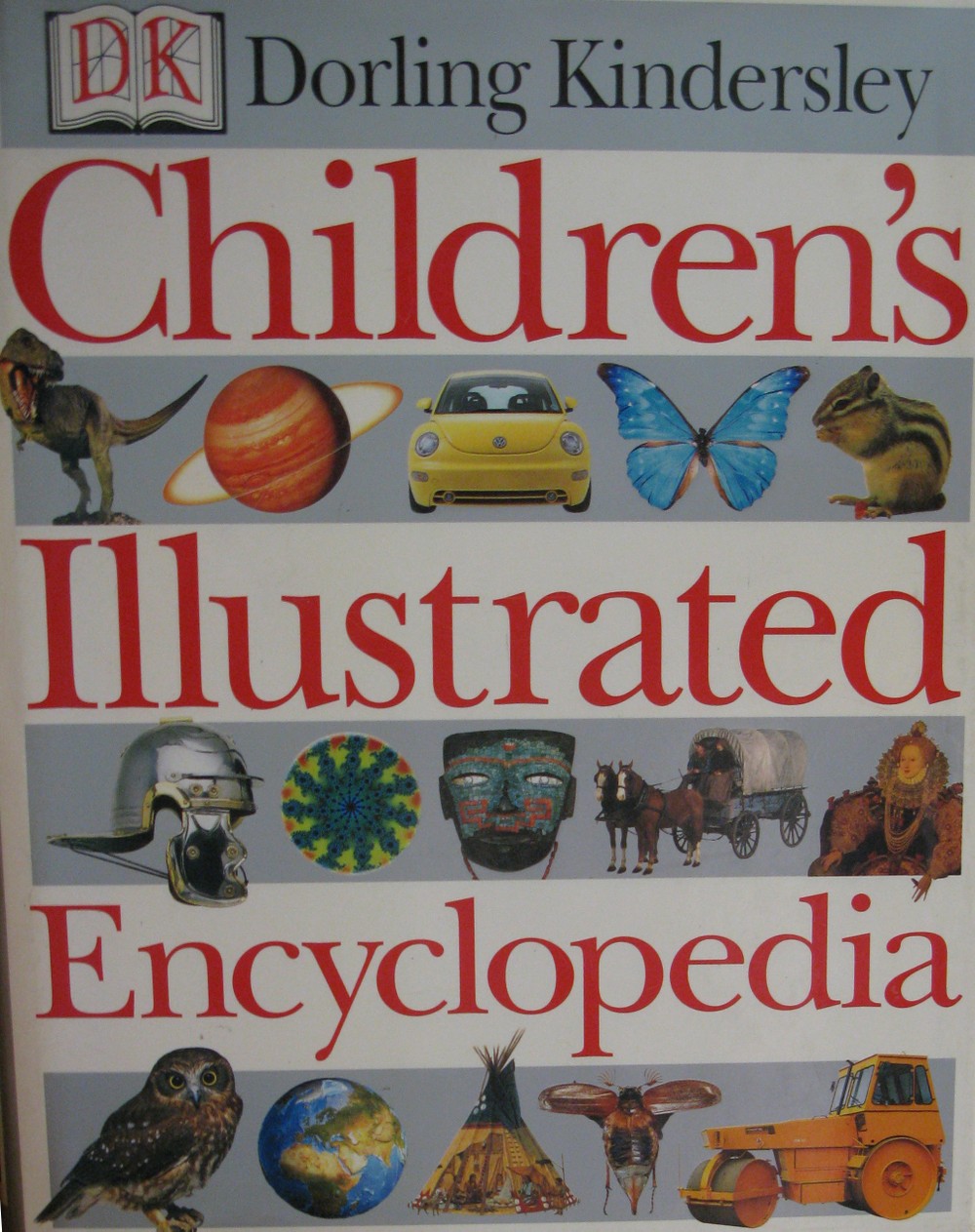
Vu Thuy, head of the copyright department of Thai Ha Publishing House in Hanoi, begins her working day as usual by surfing online bookstores such as amazon.com or nytimes.com and official websites of well known publishing houses like Play Bac, HarperCollins, Hachette, Dorling Kindersley and Harvard, searching for eye-catching titles, but often in vain. So discouraged does she get that she turns to her coffee and newspaper on ‘Buddhist Culture’ for solace.
By this time she is in better spirits and finds cheer in a series of books written by Taiwanese Buddhist monk Thich Thanh Nghiem. Wanting this to be her next topic of work, she attempts to contact the author or the copyright holder. It takes months to negotiate before she is finally given permission to publish the series in Vietnam.
However, this effort seems nothing compared to the persistence of artist Tran Dai Thang, director of Dong A Publishing House who spent 3 years negotiating and 5 years translating, editing and designing besides spending VND200 million (approx. US$9,750) to introduce the Vietnamese version of the above best-seller to Vietnamese readers.
Dorling Kindersley Publishing House (DK), prides in this book. Hence, little wonder that Thang, as representative of obscure Vietnam, received no answer even though he sent mail after mail.
While on a trip to the Frankfurt book fair in Germany to meet the Asian representative of DK, he was bluntly refused, saying that permission to print such a renowned book, which had already sold 3 million copies in English, was not available to someone who knew nothing about it.
Not allowing this to affect him, Thang introduced other excellent works and asked to be given a chance to publish a translated version only after absolute approval of DK. Thanks to this enthusiasm and great illustration works by his company, DK finally gave the thumbs up to the project and also for other promising projects in the future.
A similar situation happened for Tre Publishing House when the author of ‘The Age of Turbulence: Adventures in a New World’, Alan Greenspan, asked to scan through every edited word of the Vietnamese version before allowing its release in the market.
The global book market poses many challenges for publishers. For instance, the book may have been released by an American Publisher but the author lives in Europe and the copyright representative is in Australia. This requires much patience to connect all ends to reach a finish line.
However, not all works prove tedious. The book ‘Twilight’ by Stephanie Meyer was discovered on amazon.com by a seeker from Tre Publishing House and the company sort permission as they believed it to be a good story. The negotiations went easily as the book was not yet known. It sure was a bargain at that time as only a short while later it became such a hit!
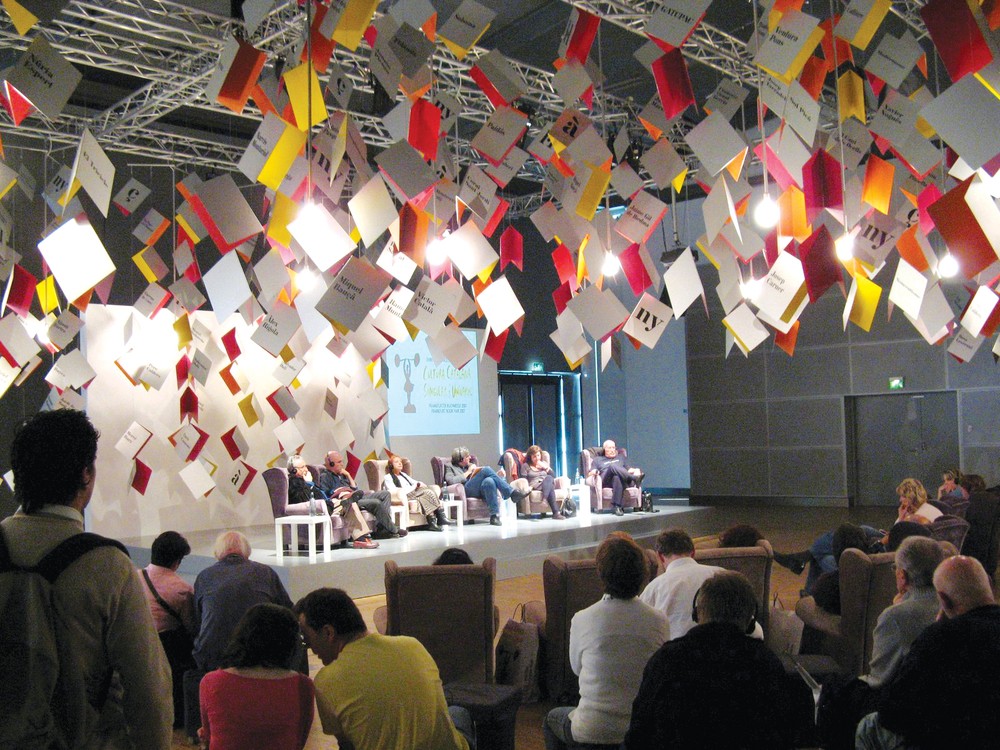
Take also the case of the Ky Thu Company gaining permission to publish a series of books on ‘The art of Living’ from Your Life Support System Publishing House in the USA. After a brief discussion, director Steve Goodier settled for a price of US$1 per book!
Price margins in Vietnam
Vietnamese book market is still very immature compared even to its closest neighbors, Thailand or Singapore. A publishing house in Vietnam would spend US$5,000-10,000 for book permission and extend to US$1,000 in some rare cases.
However, foreign partners usually require a minimum of 3-5 years per contract and a transfer price of at least US$1,000 per book, plus first-time published copies as requested.
How can a foreign publisher believe in the Vietnamese partner’s sincerity knowing that no more than 10,000 copies of its best-seller will be released, in a country of 86 million at a selling price of less than US$2? There really is no way of convincing except to explain that the per capita income and standard of living in Vietnam is still quite low.
Royalty payments ranging from 6-10 percent for normal books and 12-15 percent for best sellers is another problem. With a royalty of 6 percent, it is more logical to choose Thailand, for example, where the number of first-time published copies can reach 10,000, than Vietnam where the numbers can only reach 1,000.
Another obstacle that seekers often encounter when negotiating is breach of copyright laws by creating pirate versions of a book and then selling them at lower prices. Sometimes, competition amongst publishers pushes a transfer price to a much higher level, hence a very expensive book price for the Vietnamese version!
Cultural differences

The Manga Doraemon, created in 1969 by Japanese artist Fujiko Fujio, became a phenomenon in Vietnam when released in 1992 by Kim Dong Publishing House under the title Do-re-mon.
At that time copyright laws were scantly followed in the country and the Manga, which was translated from Thai, not Japanese, was full of several mistakes such as names of characters and plots in the story line. These errors were only corrected 18 years later by the same publishing house in a new edition.
The series ‘Ein Fall für TKKG’ by German author Stefan Wolf has an even stranger story. To make it easy for the general public to read, writer Bui Chi Vinh changed the entire original plot details. The result was a new story with one of its four main characters getting a brand new makeover (Peter Carsten, nickname Tarzan). This sent shock waves to fans of the book.
Lately, the well established Kim Dong Publishing House was banned from distributing the Vietnamese version of a book series titled ‘Children's Miscellany’, after many parents raised concerns over the books' negative content like how to cheat in exams, play tricks on other people or use robotic voices to annoy other people.
These subject matters may be suitable for western culture but not for the Vietnamese culture. As a result, the collection which is a best-seller in the UK and US was removed from bookstores in Vietnam!
| According to Pham Minh Thuan, president of Fahasa book shop, currently 40-50 percent of published books in Ho Chi Minh City are translated editions, while 80 percent in the entire country. |
